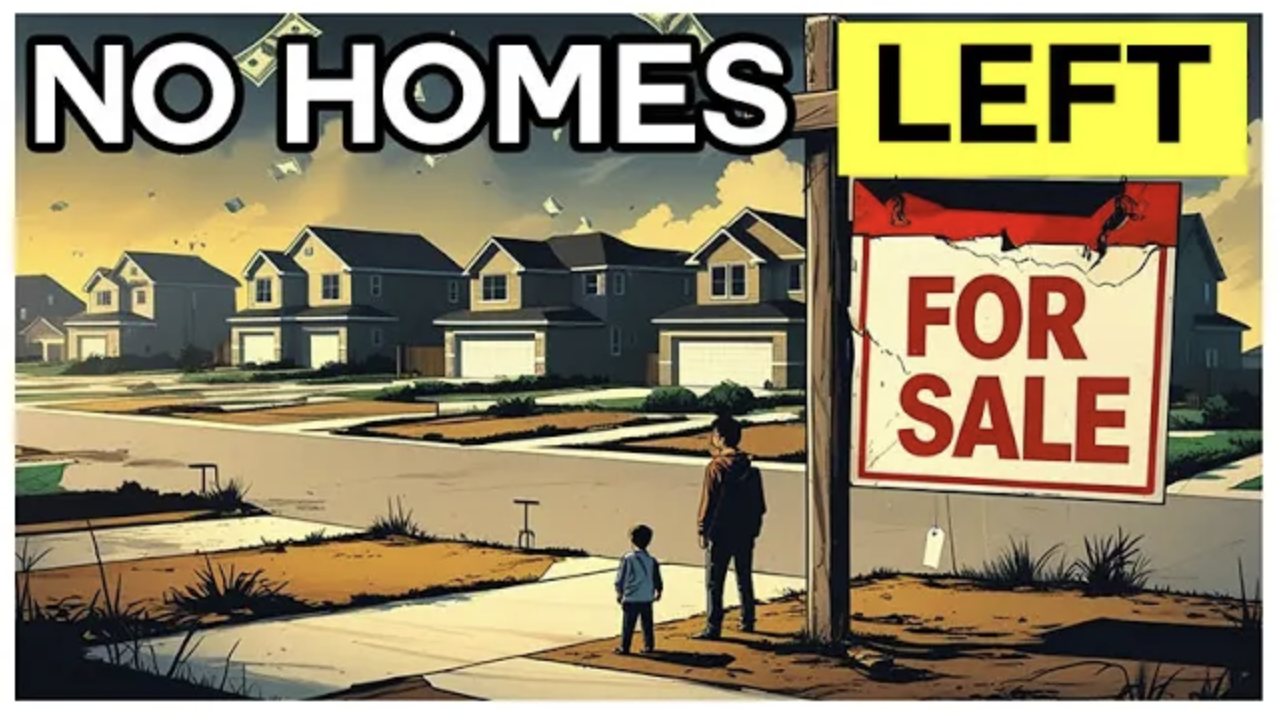Categories
Buying Tips & Resources, Home Prices, Homebuyer Tips, Interest Rates, Real Estate Tips, Real Estate Market Trends, Seattle Real Estate, Washington State Real Estate, Wealth Building, Wealth Building through Real EstatePublished September 18, 2025
The Housing Game Is Rigged: Why You’ll Never Own a Home (Unless You Know THIS)

Your home isn’t just a home anymore. It’s Wall Street’s favorite financial playground. The housing market has shifted from being about shelter to being about securities, hedge funds, and spreadsheets—and spoiler alert—it’s not doing society any favors.
From Shelter to Stock Ticker
For most of American history, buying a home was about stability, family, and finally cashing in on the American Dream. You scrimped, saved, got your credit right, and picked out that little corner-lot house with the greenbelt behind it.
Fast forward to today and the deck is stacked. Homes aren’t just shelter—they’re traded like stocks. Investors and hedge funds track housing like it’s the S&P 500. Big data decides what’s hot, and billions flow in and out of neighborhoods as if they’re just another line item in a portfolio. With $31 trillion in U.S. residential real estate (and 60% of all global assets tied up in property), your cozy living room has officially become Wall Street’s boardroom.
The Birth of Housing as a Financial Product
This all started back in the 1930s when President Roosevelt created Fannie Mae as part of the New Deal. By the 1970s, both Fannie Mae and Freddie Mac were buying up mortgages, pooling them, and selling them off as mortgage-backed securities. The result? Tons of liquidity, lower interest rates, and a shiny new way to make money.
Oh, and they also gave us the 30-year fixed mortgage—uniquely American. Great for homeowners, sure, but also rocket fuel for investors who could borrow bigger, borrow cheaper, and scale faster than you ever could.
When non-agency (aka risky) mortgage-backed securities came into play, politicians on both sides pushed them hard in the name of homeownership. That riskier lending? It blew up spectacularly in 2008. Taxpayers ate the bill while Wall Street shrugged. Sound familiar?
Wall Street vs. Main Street
Enter today’s “new guard”: hedge funds and private equity firms buying single-family homes. While they only own 2–4% nationwide, in some counties that number jumps to 20–50%. Picture a young family with an FHA loan going head-to-head with a hedge fund dropping all cash. You already know who wins.
Mom-and-pop landlords owning a few properties? Fine. Blackstone swallowing entire subdivisions? Not so fine. Some lawmakers are even pushing bills to keep hedge funds out of residential housing altogether. It’s about time.
The Efficiency Trap
Now, let’s be fair. This financial system has opened doors. It’s expanded access to credit, created diverse housing products, and made real estate one of the best inflation hedges out there. But efficiency comes with a price: the borrower-lender relationship is broken. Risk has been shoved onto taxpayers, housing has become a commodity, and affordability is in crisis.
The average first-time homebuyer is now pushing 40. Rent is skyrocketing. And if you think Wall Street’s going to stop at a few thousand homes, think again.
Fixing a Rigged Game
So how do we fix this? A few ideas:
-
Understand the system. If you care about affordability, you need to know how the mortgage machine works.
-
Incentivize builders. Cut red tape, lower permit fees, and give tax credits for starter homes. Twenty-four percent of a home’s cost is just bureaucracy.
-
Keep Wall Street in check. Owning a handful of rentals is fine. Owning entire neighborhoods? Not so much.
-
Build more. We’re short 4–6 million homes in the U.S. More supply = more stability.
At the end of the day, housing should be about shelter and stability—not hedge fund profits. If we don’t draw the line, the American Dream is going to look a lot less like a corner-lot starter home and a lot more like Wall Street’s latest acquisition.
.png)




